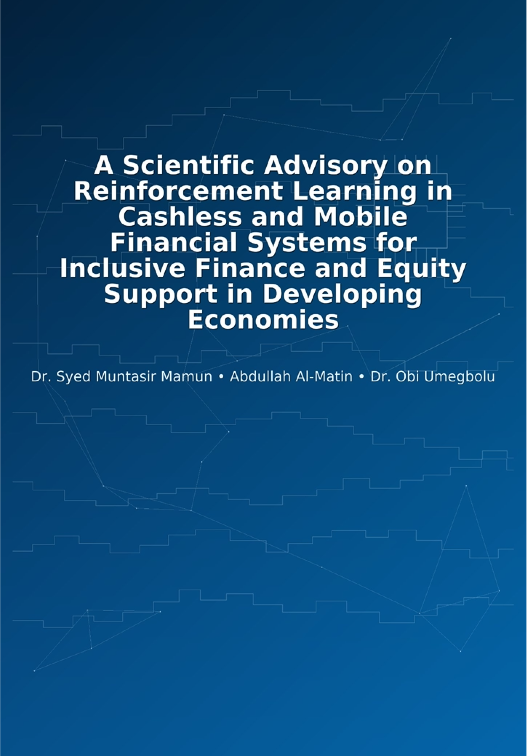Physical Address
304 North Cardinal St.
Dorchester Center, MA 02124
Physical Address
304 North Cardinal St.
Dorchester Center, MA 02124

A Scientific Advisory on Reinforcement Learning in Cashless & Mobile Finance
Building fair, inclusive financial systems in developing economies
Authors: Dr. Syed Muntasir Mamun • Abdullah Al-Matin • Dr. Obi Umegbolu
Publisher: AI for Africa Thinktank (AIFAT)
Cashless and mobile finance have changed how people move money across Africa and Asia, but millions still remain outside the system. This advisory shows how Reinforcement Learning (RL) – a branch of AI that learns by doing – can make financial services more inclusive, safer, and fairer in fast-moving markets like Bangladesh and Nigeria.
What’s inside:
Clear, practical roadmap for using RL in Mobile Financial Services (MFS) to support inclusion and equity.
Real-world contrasts: Bangladesh’s bank-led MFS (e.g., bKash) vs. Nigeria’s fintech-driven, sandbox-enabled model (e.g., OPay, PalmPay).
High-impact use cases:
Key highlights:
In markets where MFS has already cut transaction costs by up to 90%, RL can push inclusion further by improving decisions as conditions change.
Bangladesh: strong, bank-led stability with AI-enabled MSME scoring; huge transaction volumes through bKash.
Nigeria: competitive, innovation-driven ecosystem with regulatory sandboxes and major fintech investment—fertile ground for RL pilots.
Risk lens: address the digital gender gap, rising cyber threats, and algorithmic bias so models don’t exclude those who need access most.
Actionable steps: set up RL sandboxes, invest in localized data centers, adopt human-centered reward shaping, and design responsible PPPs.
Who should read this:
“RL lets financial systems learn and adapt in real time – so inclusion is a measurable outcome.”
Download the full report (PDF) to get the detailed frameworks, case studies, and implementation playbooks: